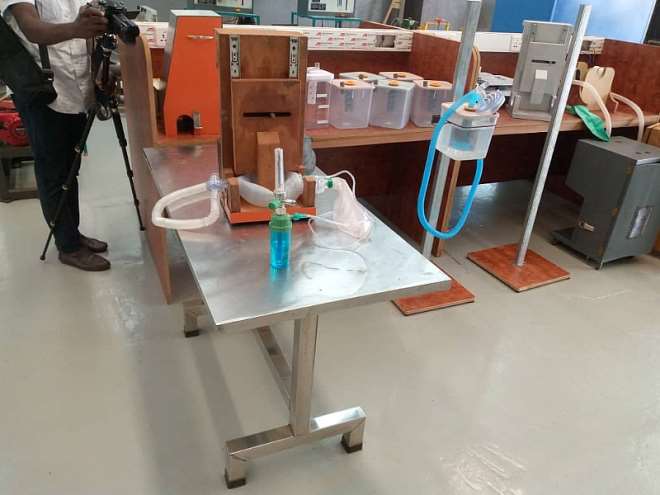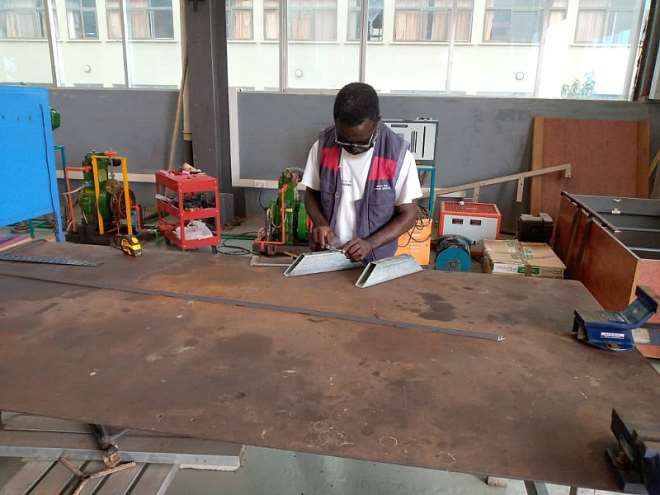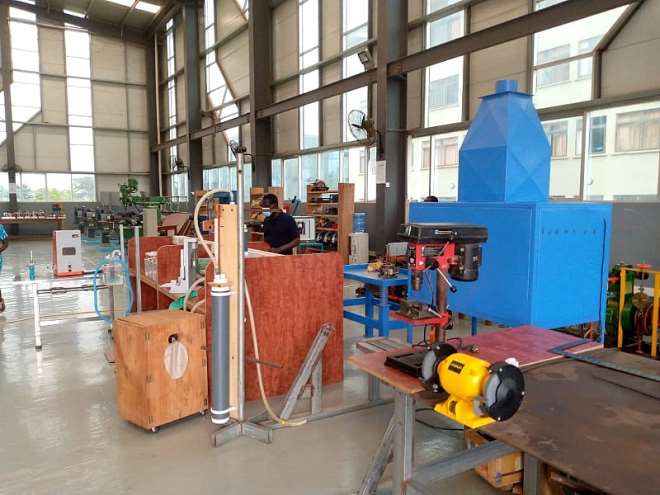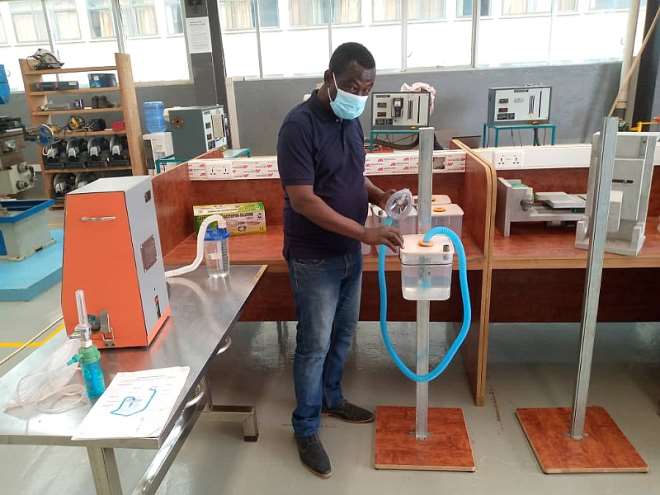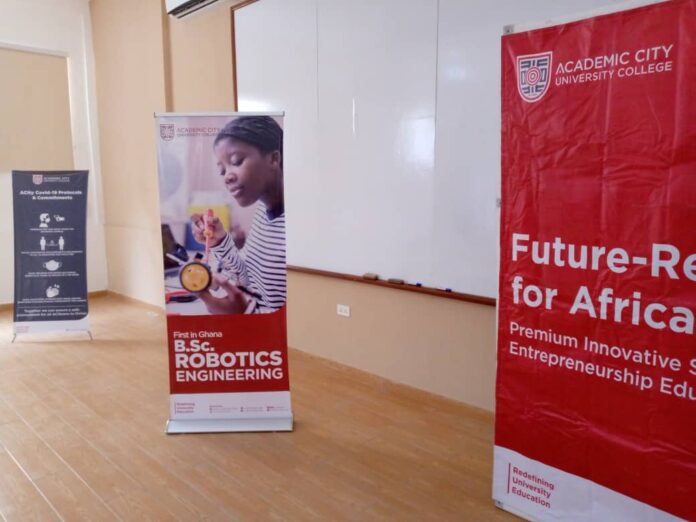According to the Robotic Industry Association, “robots are high-performance machines with a tight grip on our economy and our future, and as they make their way into new industries, there’s a growing demand for skilled workers to build, operate, and service them. (https://www.ptc.com/en/product-lifecycle-report/demand-for-robotics-engineers-grows).”
Statistics by the US Bureau of Labor Statistics show the demand for robotics engineers is poised to experience 13% growth through 2018. (https://www.ptc.com/en/product-lifecycle-report/demand-for-robotics-engineers-grows).
It is against this background that the Academic City University College (ACITY) located in Haatso Accra, has launched a 4-year BSc. Robotics Engineering Programme to meet the growing, demanding and changing dynamics of today’s world.
The program is deliberately designed to play comfortably at the intersection of AI and Biomedical Engineering providing further impetus to new programmes in Data Analytics and Advanced Autonomous Systems.
Rapid advances in technology have led to a surge of public interest in robotics and biomedical.

The government of Ghana has been making efforts to drive change and development in various aspects of national life.
There is general recognition that promoting technological advancement in every sector is key to facilitating development in the country.
The initiative is to support government’s effort to drive technology for national growth.
By this approach, the ACITY intends to create a versatile graduate conversant in a broad area of robotics while poised also for research in the rapidly evolving field of robotics.
According to Dr. Fred McBagonluri the President of Academic City College, the introduction of the Robotics Engineering programme formed is part of our efforts at developing a cadence of engineering programmes that will continue to push the boundaries of knowledge while establishing a foothold for our students in jobs-of-the-future.
He was addressing the press at the official launch of the BSc. Robotics Engineering Programme at the Haatso campus.
“Worcester Polytechnic Institute (WPI) our strategic partner in this programme have had a robotics programme and research for over 30 years and developed the first undergraduate programme in robotics. Our future industrialisation efforts across the spectrum of key strategic areas such as manufacturing, agriculture, education, healthcare, etc. are pivoted around robotics. Hence, we can no longer wait to join the robotics wagon,” Dr. McBagonluri stated.
He revealed that in the Robotics programme, emphasis is placed on design, analysis and modeling, programming, integration of Artificial Intelligence (AI) and manufacturing.
“Additionally, the need to industrialise has been effectively articulated by the Government of Ghana. This government endeavor will require the design, development, and deployment of robotics systems and the pertinent operational logistics that graduates from this programme could support. Furthermore, robotics clubs are springing up across Ghana without opportunities in our universities for students to pursue such courses. We run a risk of losing such kids to opportunities abroad.”
The aim of the BSc in Robotics Engineering programme is to train students on the principles and practices of robotics to enable them design, analyse, deploy, and maintain technological solutions across a wide range of applications fields of human endeavors (e.g. agriculture, medicine and healthcare, automotive, mining, aerospace, electronics and computers, chemical, telecommunication, textile, etc.).
The objectives of the BSc in Robotics Engineering is to develop the next generation of engineering students with the ability:
• To conceptualize, design, develop, and produce modern engineering systems by drawing knowledge from a comprehensive tool-kits of multi-disciplinary engineering.
• To utilize a grounding in principles and practices in robotics, controls and artificial intelligence to enable them to design, analyse, deploy, and maintain technological solutions across a wide range of fields of human endeavors.
• To be competent and ethical engineers able to analyse technical requirements and apply their knowledge in a highly professional manner for the benefit of society.
• To practice life-long learning through research, education, and continuous professional development.
Touching on the future of employment, Dr. McBagonluri posited that Robotics engineering may lead to potential career opportunities in manufacturing, research and engineering, agriculture, mining, space exploration, power-plant maintenance, and a variety of other areas.
Some sample job titles may include Controls engineer; Manufacturing process engineer; Mechanical design engineer; Computer engineer; Automation engineer; Software Engineer; Mechanical Engineer; Hardware Engineer; R&D Product Development Engineer; Quality Control Engineer; Front End Developer; Transportation Engineer, amongst others.
